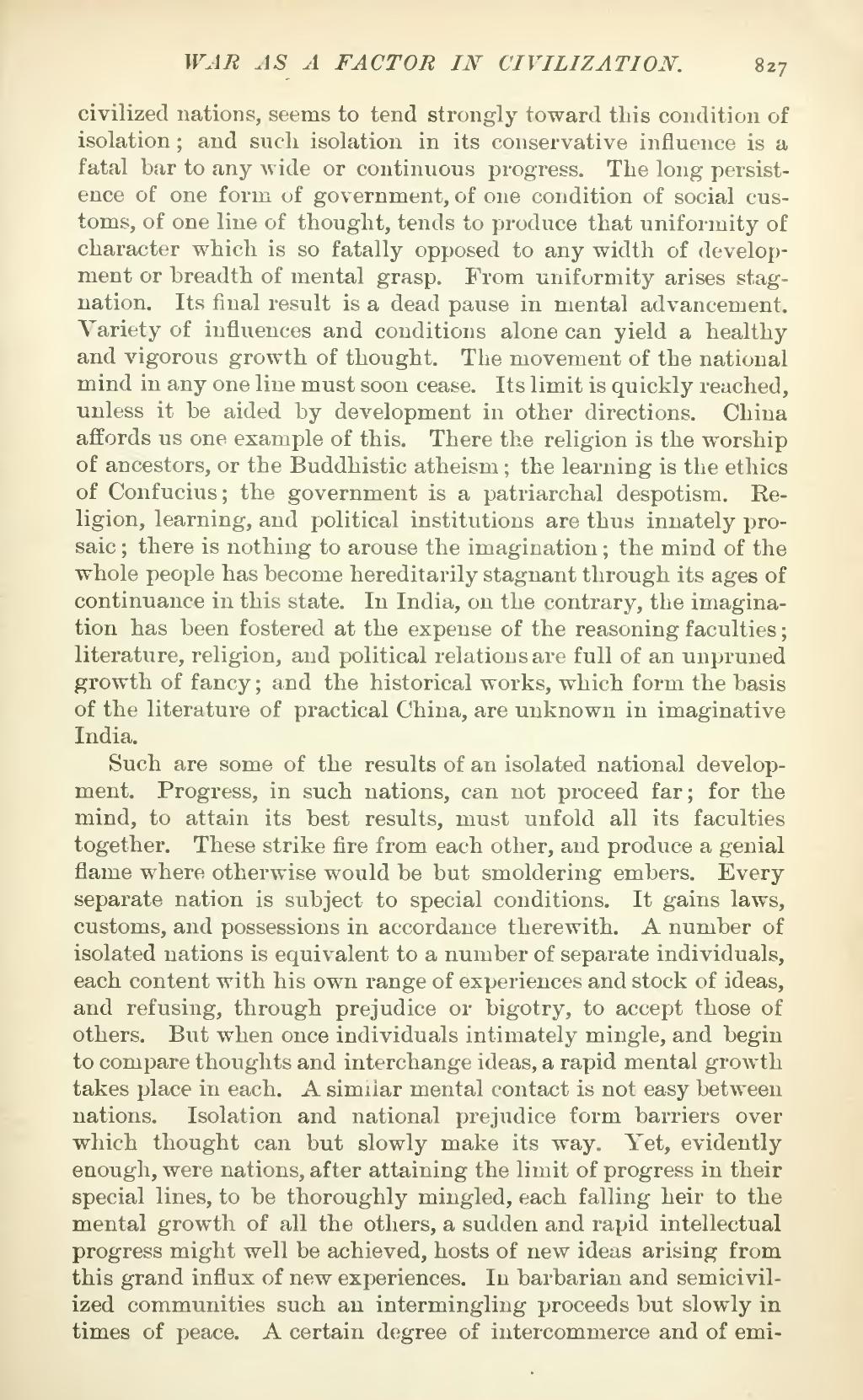civilized nations, seems to tend strongly toward this condition of isolation; and such isolation in its conservative influence is a fatal bar to any wide or continuous progress. The long persistence of one form of government, of one condition of social customs, of one line of thought, tends to produce that uniformity of character which is so fatally opposed to any width of development or breadth of mental grasp. From uniformity arises stagnation. Its final result is a dead pause in mental advancement. Variety of influences and conditions alone can yield a healthy and vigorous growth of thought. The movement of the national mind in any one line must soon cease. Its limit is quickly reached, unless it be aided by development in other directions. China affords us one example of this. There the religion is the worship of ancestors, or the Buddhistic atheism; the learning is the ethics of Confucius; the government is a patriarchal despotism. Religion, learning, and political institutions are thus innately prosaic; there is nothing to arouse the imagination; the mind of the whole people has become hereditarily stagnant through its ages of continuance in this state. In India, on the contrary, the imagination has been fostered at the expense of the reasoning faculties; literature, religion, and political relations are full of an unpruned growth of fancy; and the historical works, which form the basis of the literature of practical China, are unknown in imaginative India.
Such are some of the results of an isolated national development. Progress, in such nations, can not proceed far; for the mind, to attain its best results, must unfold all its faculties together. These strike fire from each other, and produce a genial flame where otherwise would be but smoldering embers. Every separate nation is subject to special conditions. It gains laws, customs, and possessions in accordance therewith. A number of isolated nations is equivalent to a number of separate individuals, each content with his own range of experiences and stock of ideas, and refusing, through prejudice or bigotry, to accept those of others. But when once individuals intimately mingle, and begin to compare thoughts and interchange ideas, a rapid mental growth takes place in each. A similar mental contact is not easy between nations. Isolation and national prejudice form barriers over which thought can but slowly make its way. Yet, evidently enough, were nations, after attaining the limit of progress in their special lines, to be thoroughly mingled, each falling heir to the mental growth of all the others, a sudden and rapid intellectual progress might well be achieved, hosts of new ideas arising from this grand influx of new experiences. In barbarian and semicivilized communities such an intermingling proceeds but slowly in times of peace. A certain degree of intercommerce and of emi-
